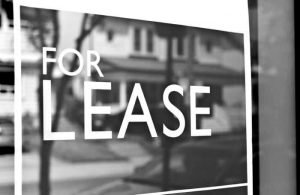Retail leases are governed by the Retail Leases Act 2003 (Vic) (“Act”). Unlike other states, the Act does not prescribe a checklist of premises that is considered to be retail. Instead, the Act broadly defines retail premises and leaves the rest up to interpretation.
 What is a retail lease?
What is a retail lease?
A retail lease is a lease where the premises are used or to be used, wholly or predominantly for the sale or hire of goods and services or the carrying on of a business type specified by the Minister. For example, premises used by professionals that supply services to the public (located on any one of the first three storeys of the building), serviced apartments, stalls in a market and a conference and function centre are retail premises.
The Act does not apply to leases of retail premises if:
- the premises are not used or to be used, wholly or predominately for the sale or hire of goods and services;
- the total occupancy costs (combined cost of rent and outgoings) exceed $1 million per year;
- the tenant is a public company or a subsidiary of a public company;
- the premises are operated by a tenant on behalf of the landlord;
- the premises or part of the premises are in a building used wholly or predominantly for the retail provision of services, other than premises located entirely on any 1 or more of the first 3 storeys in a building, excluding any basement levels or in a shopping centre;
- the lease is for a term of less than one year (except that if a tenant remains in possession for more than 1 year as a result of the lease being renewed or continued, then the Act will apply);
- the premises are used for Barristers’ Chambers;
- the term of the lease is 15 years or more, and the lease imposes obligations on the tenant to carry out substantial work on the premises (structure or fixtures, plant and equipment or appliances, fittings or fixtures relating to gas, electricity, water, drainage or other services), the tenant is obliged to pay for the substantial works or the tenant is dis-entitled from removing any of the substantial works at the end of the lease;
- the premises are used for certain community and charitable purposes, subject to a maximum annual rental of $10,000.00;
- the premises are leased by a local council under which the premises may be used wholly or predominantly for public or municipal purposes or charitable purposes, and
- the premises are entirely located entirely within the Melbourne Markets.
What does it mean if my lease falls under the Act?
If your lease is deemed to be a retail lease, the Act imposes extra obligations on landlords and affords extra protections to tenants. Those obligations and protections override anything the parties may otherwise have agreed to and can have a significant financial impact on the parties.
As such, it is important to know whether the Act will apply to your lease, whether you are a landlord or a tenant.
If you would like to make an appointment with us, please contact us on 5303 0281 or at property@ballaratlawyers.com.au.
For more information on our conveyancing arm, click here.
The information on this website is of a general nature only. It is not, nor is it intended to be, legal advice. You should consult a lawyer for individual advice about your particular circumstances.
Liability is limited by a scheme approved under Professional Standards Legislation.
Click here to go back to Publications.
